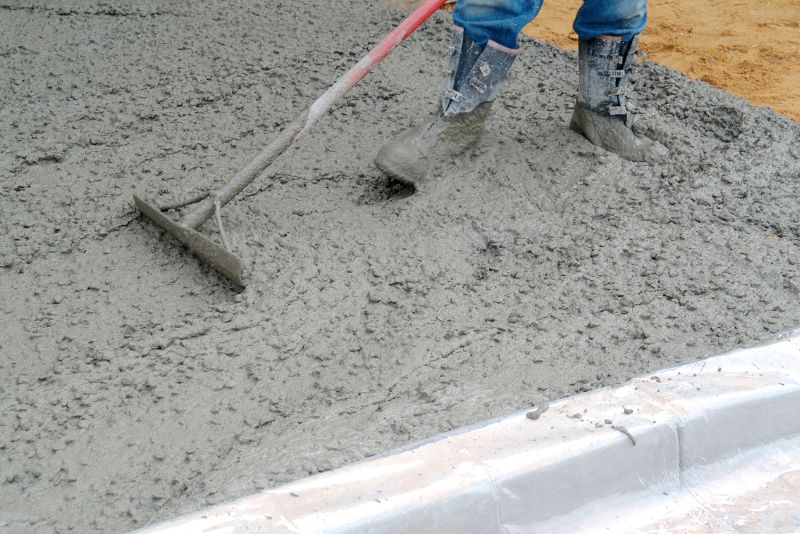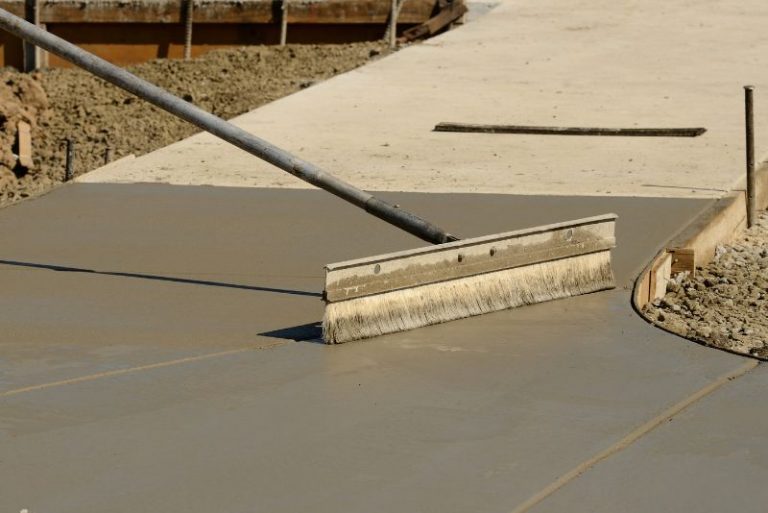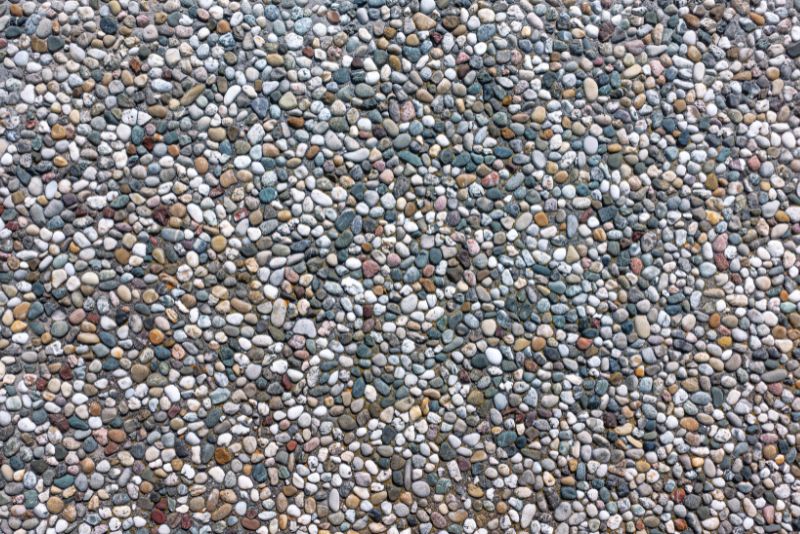Cracked concrete can be a homeowner's nightmare. Whether it's your driveway, patio, or foundation, concrete…
Concrete Cleaning Methods: What Works and What Damages
Concrete surfaces around your home take a beating from weather, spills, and daily use. Whether it’s your driveway, patio, or walkway, keeping concrete clean not only improves your property’s appearance but also extends its lifespan. However, using the wrong cleaning methods can cause permanent damage that costs thousands to repair.
- Understanding Common Concrete Stains and Their Challenges
- Safe and Effective Cleaning Solutions That Actually Work
- Cleaning Products and Methods That Will Damage Your Concrete
- Tackling Specific Stains: Oil, Rust, Paint, and Organic Matter
- Preventive Maintenance: Keeping Your Concrete Clean Long-Term
- Ready to Restore Your Concrete?
Many homeowners make costly mistakes when cleaning concrete, from using harsh chemicals that erode the surface to scrubbing techniques that create scratches and weaken the material. The good news is that with the right knowledge and approach, you can keep your concrete looking great for years to come.

Understanding Common Concrete Stains and Their Challenges
Different types of stains require different cleaning approaches. Oil stains from cars are among the most common and stubborn problems homeowners face. These penetrate deep into the concrete’s porous surface, making them difficult to remove with basic cleaning methods.
Rust stains often appear as orange or brown spots, typically caused by metal objects left on the surface or iron in the water supply. Paint spills create another challenge, especially if they’ve had time to cure and bond with the concrete.
Organic stains from leaves, algae, or mould appear as dark patches and can make surfaces slippery and unsafe. Each of these stain types bonds with concrete in a different way, which is why a one-size-fits-all cleaning approach is rarely effective.

Safe and Effective Cleaning Solutions That Actually Work
The best concrete cleaning starts with the gentlest methods first. For regular maintenance, warm water and a stiff brush can remove most surface dirt and grime. Adding a small amount of dish soap creates a safe, effective cleaning solution for weekly cleaning.
For tougher stains, baking soda paste works wonders on oil spots. Simply mix baking soda with water to create a thick paste, apply it to the stain, let it sit overnight, then scrub and rinse. White vinegar mixed with water (1:1 ratio) effectively removes mineral deposits and light rust stains.
Pressure washing can be highly effective when done correctly. Use a wide spray pattern and keep the nozzle at least 12 inches from the surface. Start with lower pressure and gradually increase if needed. Always sweep or blow away loose debris before pressure washing to avoid grinding dirt into the surface.
Cleaning Products and Methods That Will Damage Your Concrete
Avoid using muriatic acid or other strong acids unless you’re a professional. These chemicals can erode the concrete surface, causing permanent pitting and discolouration. Even when diluted, acids can cause more harm than good in the hands of untrained individuals.
Wire brushes and steel wool should never be used on concrete. They leave metal particles that rust and create permanent stains. Similarly, avoid using bleach on colored or stamped concrete, as it can cause fading and discolouration.
High-pressure washing with narrow spray tips can create permanent damage. The concentrated force can gouge the surface, creating grooves that collect dirt and make future cleaning more difficult. Never use pressure washers on damaged or cracked concrete, as the force can worsen existing problems.
Tackling Specific Stains: Oil, Rust, Paint, and Organic Matter
Oil stains require immediate attention for best results. Absorb fresh spills with cat litter or sawdust, then sweep up and dispose of the material. For set-in oil stains, try a paste made from powdered laundry detergent and hot water. Let it sit for 30 minutes before scrubbing with a plastic brush.
Rust stains respond well to commercial rust removers designed for concrete. Apply the product according to the instructions, allow for proper dwell time, and then rinse thoroughly. For minor rust stains, lemon juice or white vinegar can be effective natural alternatives.
Paint removal depends on the type of paint and its age. Water-based paints often come up with warm soapy water and scrubbing. Oil-based paints may require a commercial paint stripper specifically designed for use on concrete surfaces. Always test any product in an inconspicuous area first.
Organic stains usually respond to a mixture of oxygen bleach (not chlorine bleach) and water. This solution kills mould and algae while being gentler on the concrete surface than harsh chemicals.
Preventive Maintenance: Keeping Your Concrete Clean Long-Term
Regular maintenance prevents most serious staining problems. Sweep concrete surfaces weekly to remove debris that can scratch or stain the surface. Address spills immediately, especially oil and other liquids that can penetrate the concrete.
Sealing your concrete every two to three years provides a protective barrier against stains and weather damage. A quality sealer makes future cleaning much easier and helps prevent water damage during freeze-thaw cycles.
Consider applying a concrete cleaner and degreaser every few months to high-traffic areas, such as driveways and garage floors, to maintain their appearance. This prevents buildup that becomes harder to remove over time.

Ready to Restore Your Concrete?
While homeowners can handle many concrete cleaning tasks, some situations require professional expertise. Concrete Logan Experts specialise in safe, effective concrete cleaning and restoration services. Their team has the right tools and experience to tackle tough stains without damaging your concrete surfaces. Contact them today for a free assessment of your concrete cleaning needs and discover how they can help restore your concrete to like-new condition.
